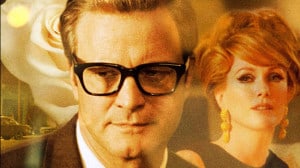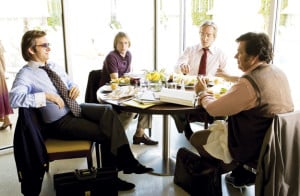THILINA BANDARA
Arts Writer
What separates good from great storytelling is resonance — and nothing resonates more than timeless themes.
Between generations, world events convey themes that have existed as long as humanity has.
To me, the Cold War period is one of the most fascinating in human history. Spanning more than 40 years of tension between the United States and Soviet Russia, this era was wrought with fear and political intrigue. The persistent threat of annihilation led to many well-publicized, bizarre strings of political decisions, forming the modern landscape as we know it.
The following three films are ones that explore those uneasy times from an American perspective, and resonate largely because of their Cold War setting and themes.
All of these films provide some perspective to the sentiments of a time when international passive-aggression escalated to near nuclear destruction. The Cold War is a backdrop rife with themes that are eerily analogous to the times we live in today.
Whether or not the films are verbatim portrayals of the history from which they harvest, these three films are great examples of what happen when talented filmmakers deftly tell stories set in an historically familiar time, resulting in poignant and resonant drama. To me, good films make me want to learn more about the times and places I’ll never truly experience for myself, and these three Cold War films inspired as much.
 A Single Man is a film about a homosexual professor who loses his partner in a car accident, and the ensuing hardships he faces in his own psyche.
A Single Man is a film about a homosexual professor who loses his partner in a car accident, and the ensuing hardships he faces in his own psyche.
Steeped right in the heart of the Cold War (during the Cuban Missile Crisis of 1962), the narrative has an underlying tension caused by the mass-paranoia of the time. While the communists were the primary “danger,” it is without a doubt that homosexuals would also feel uneasy in such persecutory times.
The movie gains greatly from superb art direction and the Academy Award nominated performance by Colin Firth (who won Best Actor this year). The ’60s feel was captured meticulously by the costume design and the set pieces are rendered with nostalgic reverence. This tale of identity dissonance amidst a suspicious world makes for spectacularly subtle drama.
 The fight against communism took America through the tragedy that was the Vietnam War and at the centre was Richard Nixon.
The fight against communism took America through the tragedy that was the Vietnam War and at the centre was Richard Nixon.
A fascinating character with complex motivations, Richard Nixon will remain fodder for films and character analysis for years to come as his presidency is one of American history’s most spectacular downfalls. The events surrounding him and his alleged abuses of power provide a rich backdrop for Ron Howard’s epic portrayal of Nixon’s televised interviews with talk show host David Frost.
Frost/Nixon‘s plot takes place during the build up, and through the interviews themselves. In a country still reeling from Nixon’s pardon of wrong doing in the now infamous Watergate scandal of the early ’70s, the setting is wrought with political tension. Both Frost and Nixon — on the last legs of their respective careers — face-off and take part in what can only be described as a theatrical boxing match. What unfolds in the interview scenes is pure acting glory.
 Good Night and Good Luck is part graduate level journalism class, part character drama.
Good Night and Good Luck is part graduate level journalism class, part character drama.
Set during the political tension of the 1950s, the narrative dramatizes the real-life story of CBS journalist Edward R. Morrow as he takes on the notorious Joe McCarthy, a Republican senator from Wisconsin best known for his rampant fearmongering and trials of suspected communists.
Shown in black and white, the riveting drama’s moral greys accentuate the tense decisions made in that newsroom as conflicts between CBS’s corporate interests and the desire to uncover a powerful politician come to a head. The ancillary character arcs delve deeper into themes of secrecy, guilt and the anxiety associated with those times, and help round out this real-life tale of journalistic justice.
Leave a Reply